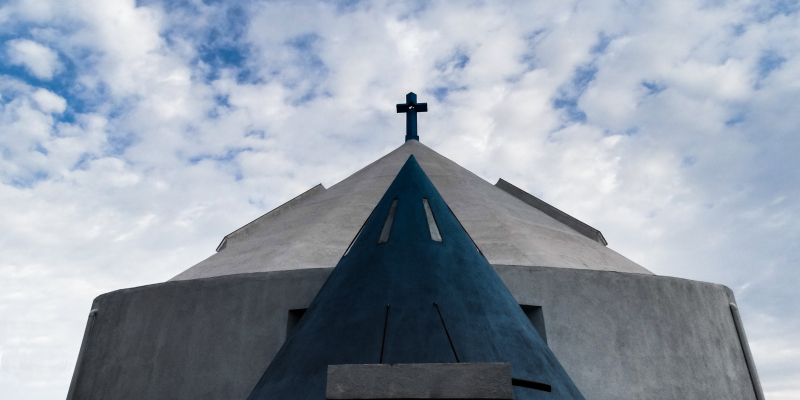There is an ecclesiastical "title" called "administrator", whose broad meaning takes on a certain shade of derision, and at the same time of concern, when we refer to the real estate with which we have to deal. The subject of the works has provoked in the parish priests many gray hairs, alopecia and neuronal necrosis. It should be noted that some are enthusiastic like a cornered "Rambo": with licenses and building permits; writing to the public administrations; with neighborhood petitions; cataloguing goods; making inventories; asking for credits; taking "Almax"...
The Lord commissioned St. Francis: "Repair my Church". When we refer it, literally, to buildings, adrenaline starts to work. Sometimes it paralyzes and sometimes it activates the wit. Some older priest grunted (rosmaba, they say in my land) to his parishioners: "Sure, for the holidays, they don't mind paying 100 euros each, but to fix up the church, nothing at all! The bills don't come to Mass!". For faith is not excluded from ecclesial works: on how many occasions has the Church had to undertake, with great lack of resources, to build, repair, promote, etc., etc., etc.! "If he is of God, he will"The elders say with absolute conviction.
But being an "edifying" priest is dizzying. Without forgetting the most important thing, the main reason for any task: the pastoral care of souls, the true living stones. Assess whether the aluminum parts will work. Budgeting with several masons. Hurry up the carpenter, because his workload has delayed the execution of the planned restoration. The electrician, who has presented a new project, more expensive, of course, but with a much more modern system. The blissful silicate paint... Deciding is difficult. "In the feudal world everything was simpler"The priest told the official, after having obtained a dozen ecclesiastical, municipal, patrimony, association, etc. permits.
The priests know that they have to go through the "regulatory channel" in their reforms and constructions. They are good payers, but the occupations saturate them. "In 20 years, Mr. Bursar, I will be raising the mallows.". So complained a parish priest in the Curia offices about the length of the loan that was being proposed to him. And blessed is the priest who finds a person in the parish with the ability and the time to help him with the works! Two types of human beings hinder the successful completion of the works. We commend them: on the one hand, the figure of the "denouncer"; out of anger, disagreement, offense or desire to appear, he puts obstacles again and again. And, on the other hand, the "stingy one"; let us cite the extreme case of those who, while watching the Holy Mass on television, change the channel at the moment of the collection.
There are reasons for serious concern in different parts of the world about the future of ecclesiastical goods: will it be possible to sustain the patrimony of parishes, especially the most humble in terms of population or resources? We Catholics have a very special idyll with Providence. Evil tongues reason it in the following way: "We have a special idyll with Providence.It is evident that God assists his Church since, in spite of human efforts to tear it down, it is still standing..". No man or woman of faith remains tied to a material construction. But he or she feels the desire to take care of the legacy received.
It seems reasonable to get rid of certain "burdens" such as unproductive farms and real estate. They generate maintenance costs, such as weeding, and dangers, such as the risk of fire or collapse. There is even a growing desire to recover the genuine evangelical spirit of austerity and poverty among the faithful. But there is also room for "micro-patronage", those small loans and grants to preserve the rich inheritance of faith entrusted to us by our ancestors. They say that a few slices of cold cuts and a little bread make a sandwich to kill hunger; but in our daily lives, we seek to feed ourselves better. In the same way, God does not need structures to listen to his children, but he knows that our dignity grows as we carry out well-done works with which to build the home of his Church.









